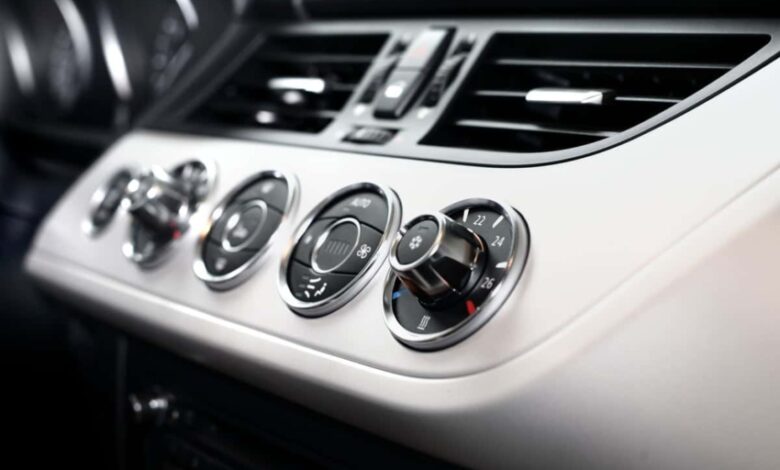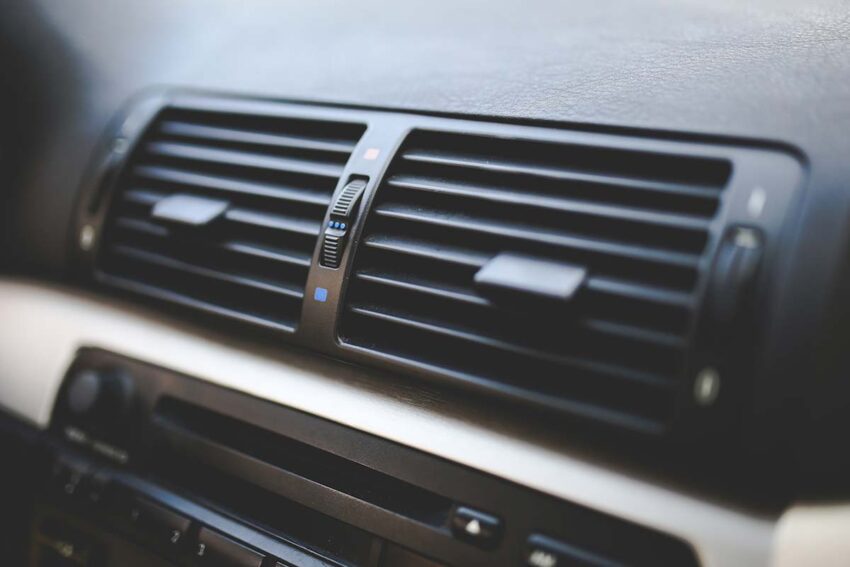How to Fix Hissing Sound in Car AC

Imagine driving on a hot summer day, seeking refuge from the scorching sun inside your car. You turn on the air conditioning (AC) system, expecting cool, refreshing air to greet you. However, instead of the soothing hum of the AC, you hear an annoying hissing sound. Don’t worry; in this article, we’ll discuss how to fix the hissing sound in car ac.
The AC system in your car plays a crucial role in providing comfort during hot weather. When it starts making a hissing sound, it indicates an underlying issue that requires attention. Understanding the cause of this sound and knowing how to address it can help you restore your car’s AC system to its optimal functionality.
Understanding the Hissing Sound in Car AC

Before we delve into the solutions, let’s understand what the hissing sound in a car AC means. Typically, the hissing sound is a result of the refrigerant flowing through the AC system. When the system develops a fault or encounters an obstruction, such as clogged filters or a refrigerant leak, the flow of refrigerant becomes turbulent, resulting in a distinct hissing noise. Identifying the cause of the hissing sound is essential to determine the appropriate fix. By the way, speaking of car issues, do you know do fender flares cause rust?
Common Causes of Hissing Sound in Car AC
Several factors can contribute to the hissing sound in your car’s AC system. Let’s explore the most common causes:
Refrigerant Leak
One of the primary culprits behind the hissing sound is a refrigerant leak. The AC system relies on the refrigerant to cool the air. When there’s a leak, the refrigerant escapes, causing a disturbance in the system’s flow, resulting in a hissing sound.
Clogged Expansion Valve
The expansion valve controls the flow of refrigerant into the evaporator coil, where it absorbs heat from the air. Over time, debris or particles can accumulate, clogging the valve and disrupting the smooth flow of refrigerant, leading to the hissing sound.
Faulty Compressor
The compressor is the heart of the AC system, responsible for pressurizing the refrigerant and circulating it throughout the system. If the compressor is faulty or damaged, it may create turbulence in the refrigerant flow, resulting in a hissing sound.
Blocked or Dirty Condenser
The condenser is responsible for releasing heat from the refrigerant to the outside air. However, if it becomes blocked or dirty due to debris or dust accumulation, the airflow is impeded, causing the refrigerant to hiss as it flows through the obstructed pathways.
Diagnosing the Hissing Sound
To address the hissing sound in your car’s AC system effectively, it’s crucial to diagnose the underlying issue accurately. Here are a few steps to help you identify the problem:
Visual Inspection
Begin by visually inspecting the AC system components. Look for any signs of damage, such as visible leaks, worn-out hoses, or loose connections. Pay close attention to the compressor, expansion valve, and condenser.
Listening to the Sound
Start the car’s engine and turn on the AC system. Listen carefully for the hissing sound. Try to locate the source of the noise, as it can provide valuable insights into the underlying issue.
Checking Refrigerant Levels
If you suspect a refrigerant leak, it’s essential to check the refrigerant levels. Low levels of refrigerant can lead to a hissing sound. Consult your car’s manual to locate the refrigerant fill port and use a gauge to measure the refrigerant levels accurately.
Fixing the Hissing Sound in Car AC
Once you’ve identified the cause of the hissing sound, you can take appropriate measures to fix it. Here’s how you can address the common causes we discussed earlier:
Identifying the Root Cause
Before proceeding with any repairs, it’s crucial to determine the root cause accurately. If you’re unsure or uncomfortable performing the repairs yourself, it’s advisable to seek professional assistance from a qualified mechanic or AC technician.
Repairing Refrigerant Leak
If you’ve detected a refrigerant leak, repairing it should be your priority. Depending on the severity of the leak, you may need to replace a damaged hose, seal, or valve. Once the leak is fixed, refill the refrigerant to the recommended levels.
Cleaning or Replacing the Expansion Valve
For a clogged expansion valve, you can attempt to clean it using a specialized AC system cleaner. Follow the manufacturer’s instructions to ensure proper usage. In severe cases, replacing the expansion valve might be necessary.
Repairing or Replacing the Compressor
If a faulty compressor is causing the hissing sound, repairing it might require professional expertise. Consider consulting a qualified mechanic to diagnose the issue accurately and determine if the compressor needs repair or replacement.
Cleaning or Unclogging the Condenser
In the case of a blocked or dirty condenser, you can clean it using compressed air or a gentle stream of water. Be cautious not to damage any fragile components during the cleaning process. If cleaning doesn’t resolve the issue, it may be necessary to replace the condenser.
Prevention Tips to Avoid Hissing Sound in Car AC
Preventing the hissing sound in your car’s AC system is key to maintaining its optimal performance. Here are some tips to help you avoid such issues:
Regular Maintenance
Schedule regular maintenance for your car’s AC system. This includes inspections, cleaning, and any necessary repairs. Regular maintenance can help detect and address potential problems before they escalate.
Keeping the Condenser Clean
Regularly clean the condenser to prevent debris and dust buildup. This simple step can ensure proper airflow and prevent clogs, reducing the chances of a hissing sound.
Checking for Refrigerant Leaks
Regularly inspect the AC system for any signs of refrigerant leaks. Look for oily residue around connections and fittings. If you notice a leak, address it promptly to prevent further damage.
Promptly Addressing AC System Issues
If you notice any unusual sounds, smells, or changes in AC performance, don’t ignore them. Addressing these issues promptly can help prevent minor problems from escalating into major ones.
Conclusion
Experiencing a hissing sound in your car’s AC system can be frustrating, but with the right knowledge and approach, you can fix the issue. By understanding the common causes and following the diagnostic and repair steps outlined in this article, you can restore your car’s AC system to its optimal functionality, ensuring a comfortable and pleasant driving experience.
You may like to read Wall Color for Brown Furniture: Creating a Harmonious Space




